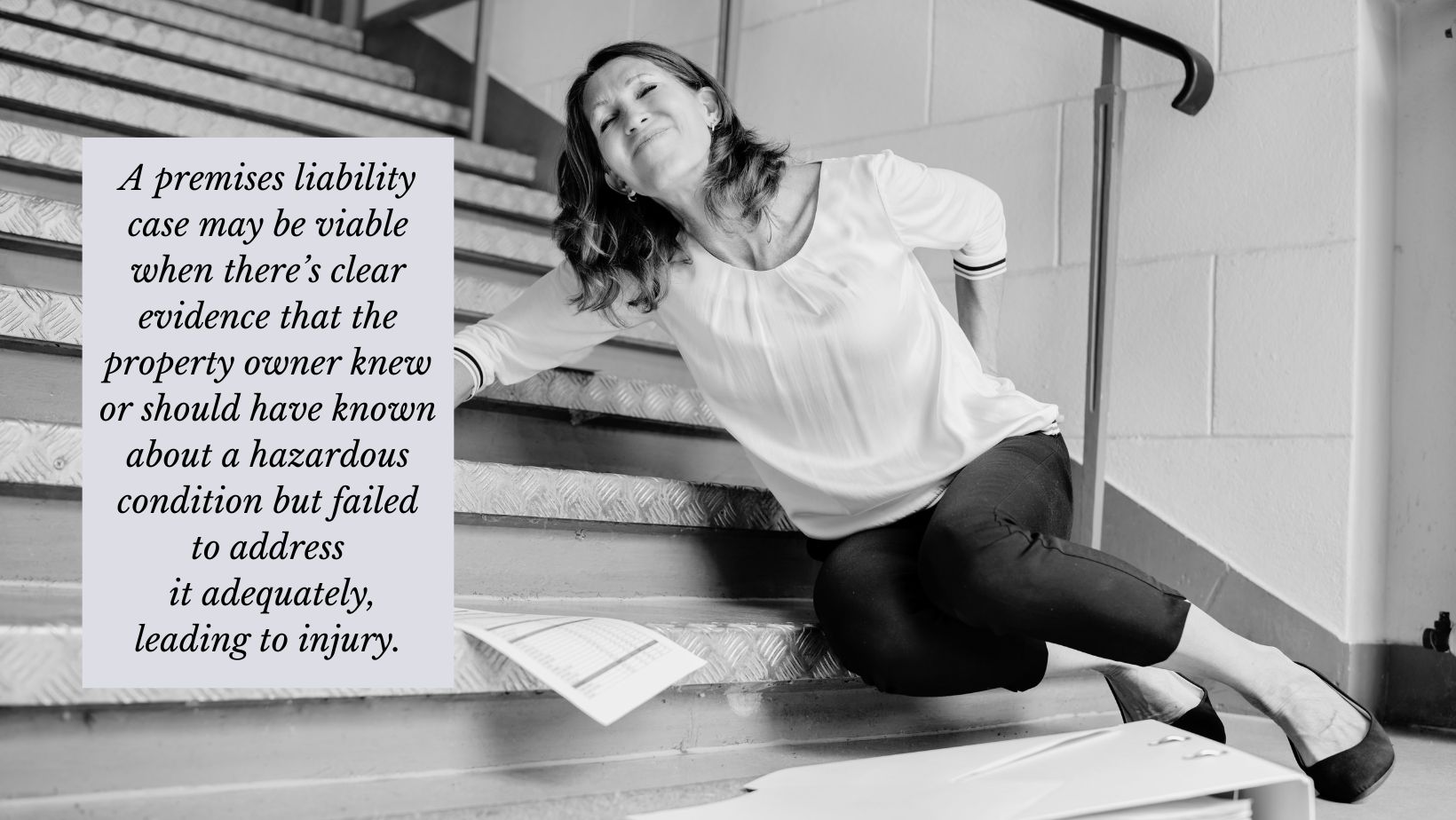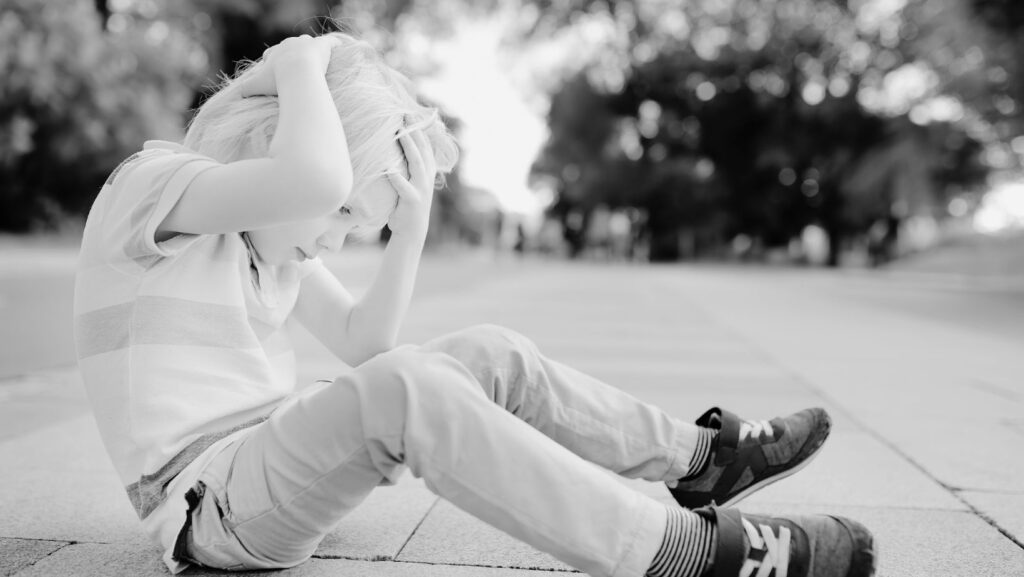Suppose you or a loved one has been involved in a dispute with a property owner concerning an injury or illness sustained on their property. You may be able to bring either a premises liability or negligence case against them. Knowing the difference between those legal terms can help you know which one applies to your situation and whether or not you have a strong case.
What is Negligence?
Let’s start with negligence. Negligence is a fundamental concept in law, especially in personal injury cases. It occurs when an individual or entity fails to take reasonable care to avoid causing injury or loss to another person. Four critical elements must be proven for an act to be considered negligent:
- Duty. The defendant must owe the plaintiff a duty of care. This means the defendant must act with the same caution as a reasonable person in similar circumstances.
- Breach of Duty. A breach occurs when the defendant fails to meet the standard of care, acting in a way that a reasonably prudent person would not.
- Causation. This links the defendant’s breach of duty with the plaintiff’s injuries. It must be shown that the defendant’s actions were a direct cause of the harm.
- Damages. The plaintiff must have suffered actual damages due to the defendant’s actions, such as physical injury, property damage, or financial loss.
Negligence can manifest in various contexts, from car accidents to medical malpractice, illustrating its broad applicability beyond just premises liability cases.
What is Premises Liability?
Premises liability is a specific form of negligence arising from injuries caused by unsafe or defective conditions on someone’s property. Property owners and occupiers have a legal duty to keep their premises reasonably safe for visitors. When they fail to do so and someone is injured, they can be held liable under premises liability.
This category encompasses a range of scenarios, including slip and fall cases, injuries from falling objects, or assaults due to inadequate security. For instance, if a grocery store fails to clean up a spill and a customer slips and gets injured, the store may be held liable for the customer’s injuries.
However, the level of care a property owner must provide can vary based on the visitor’s status—invitee, licensee, or trespasser. An invitee enters a property with the owner’s invitation for mutual benefit, a licensee enters for their own purpose with the owner’s consent, and a trespasser enters without permission or legal right. Generally, the highest duty of care is owed to invitees, followed by licensees, with trespassers receiving the least protection under the law.
In essence, while premises liability is anchored in the principles of negligence, it is distinguished by its focus on the conditions of and injuries occurring on a property.
Examples of Premises Liability
Given what we’ve just covered about premises liability, here are a few cases that could reasonably result in a claim.
- Slip and Fall Accidents: This is one of the most common premises liability cases. For example, if a supermarket fails to clean up a spilled liquid on the floor and a customer slips, falls, and sustains injuries, the supermarket could be held liable for not maintaining safe conditions.
- Inadequate Maintenance: If a property owner neglects the upkeep of their property, leading to dangerous conditions, they can be held liable. For instance, if a loose or broken stair causes someone to fall and get injured, the victim might sue the landlord for the injuries due to inadequate maintenance.
- Defective Conditions on the Premises: If an individual is injured due to a defect on the property, the property owner might be held liable. An example could be an injury resulting from a faulty elevator or escalator.
- Inadequate Security: Property owners, especially of commercial properties, have a duty to provide reasonable security measures. If a guest is assaulted or robbed on a property due to inadequate security, the property owner could be liable. For example, if a hotel fails to secure its premises adequately and a guest is assaulted, the hotel could be held responsible.
- Swimming Pool Accidents: Property owners with swimming pools must adhere to specific safety regulations to prevent accidents. If a child drowns in an unsecured or unsupervised pool, the property owner might be held liable for not implementing the necessary safety measures.
- Exposure to Toxic Substances: If a tenant or visitor is exposed to harmful chemicals or substances like asbestos, lead paint, or mold due to the property owner’s negligence, the owner could be liable for any resulting illnesses or conditions.

When to Bring Premises Liability Cases
A premises liability case may be viable when there’s clear evidence that the property owner knew or should have known about a hazardous condition but failed to address it adequately, leading to injury. For example, if a store owner neglects a reported spill and a customer subsequently slips and suffers harm, this scenario could constitute a premises liability case due to the owner’s failure to maintain a safe environment.
Conversely, a person may not have a premises liability case if they were trespassing without permission and got injured, as property owners owe the least duty of care to trespassers. Similarly, if an injury results from a hazard that a reasonable person would have noticed and avoided, such as an individual running through an area with “Caution: wet floor” signs, the property owner might not be held liable.
It’s also crucial that the injury is directly linked to the property’s condition. If an individual cannot prove that the property’s unsafe state caused their injury, they likely do not have a strong premises liability case.
How Kane Helps with Premises Liability Cases
If you or a loved one has been involved in an accident on someone else’s property and you’re wondering if you have a case, there’s an easy way to find out. At Kane Personal Injury, we’ve helped many people over the years receive the compensation they’re owed for personal injury cases. Contact us today for a free, no-obligation consultation. And remember, if you don’t win your case, we don’t take a dime in compensation. It’s that simple.
